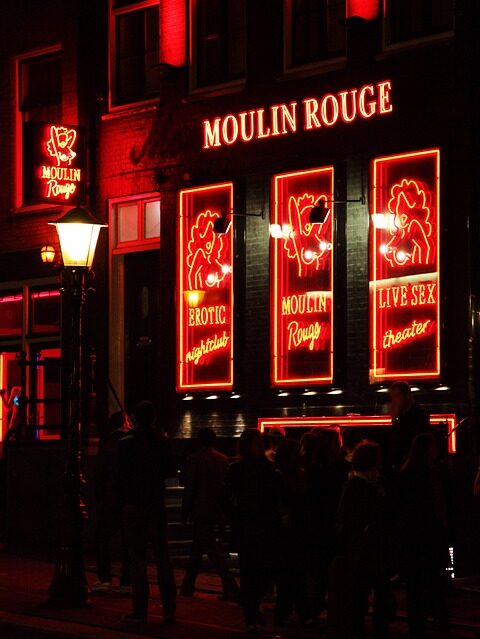
In our society, myths about prostitution are widespread and firmly anchored. As a result, those affected by prostitution are once again confronted with prejudices and biases. These false assumptions are reinforced by a lack of education and a distorted representation of pornography by the media. Many are not aware that the content conveyed by the media and the ideas about the pornography industry developed from it often do not reflect the reality of life of those affected by prostitution and falsify the image of prostitution. To shed some light on the darkness, let us shed some light on the most persistent myths surrounding prostitution.
MYTH 1: PROSTITUTION IS THE OLDEST BUSINESS IN THE WORLD

The erroneous assumption that prostitution is an integral part of our history and culture has been thought of as true in many societies for decades. But it is not true. The emergence of prostitution can be traced back to the time when men occupied the dominant position in society. Prostitution emerged with patriarchy and was promoted by slavery, which is characterised by exploitation, oppression and lack of freedom. But prostitution is not equally present in every society. Depending on the rights and position of a woman in a country, prostitution is strongly or less strongly represented.
MYTH 2: PROSTITUTES MAKE A LOT OF MONEY

Anyone who thinks that prostitution can make one rich is now confronted with the reality of prostitutes. While pimps and brothel operators can secure a comfortable life with their income, the income of prostitutes is significantly lower. In addition, portions of the money raised must be given to the pimp. But the rent of the rooms used in the brothels must also be paid off with their salary. The rest of the money is mostly spent on basic needs, sent to the family or used to buy addictive substances.
MYTH 3: WITHOUT PROSTITUTION THE NUMBER OF RAPES WOULD INCREASE

The historical link between prostitution and patriarchy has already been revealed in myth 1. It is therefore hardly surprising that the assumption that abolishing prostitution would lead to more rapes still has a strong hold in our society. This myth is based on sexist and problematic beliefs. These beliefs encourage other thoughts/beliefs that prostitutes must make their bodies available so that other women are not raped and are therefore protected. This assumption is extremely terrifying because it suggests that sexually exploiting some women so that others are safe is okay. The belief is also based on the false assumption that men have a stronger, uncontrollable sex drive and have a right to live it out. However, since most of the clients, as studies show, are in steady relationships, no sexual distress can be assumed. It is the power relationship or the subordinate role of the prostitute that tempt men to become johns.
In order to move closer towards a future without prostitution or sexual exploitation, many people, especially men, must become more aware of the prevailing gender ratio when it comes to buying sex and the effects of prostitution on women.
MYTH 4: PROSTITUTION IS VOLUNTARY

The majority of our society still thinks that prostitutes do their jobs of their own free will. But the truth is a different one. Prostitution has little to do with voluntariness, because it is characterised by the sexual exploitation of women. Often it is not just the pimps who force those affected into prostitution. It is not uncommon for prostitutes to be forced to work the streets by family members. Women from poorer countries in Eastern Europe are particularly affected by this exploitative situation.
Even if the entry into prostitution was “voluntary”, for most of those affected this is not a long-term career choice. To put it in other words: the majority want to quit again. But even leaving has nothing, or hardly anything, to do with voluntariness. Often, the women have become dependent on their pimps. Unfortunately, working as a prostitute is often associated with drug and alcohol addiction and leads to severe trauma. In addition, their future prospects are clouded by a lack of language skills and a low level of education.
We at HOPE FOR THE FUTURE are aware of this difficult situation and therefore support and encourage those affected by prostitution in their professional reorientation. Because everyone has the right to choose their professional future for themselves and of their own free will.
